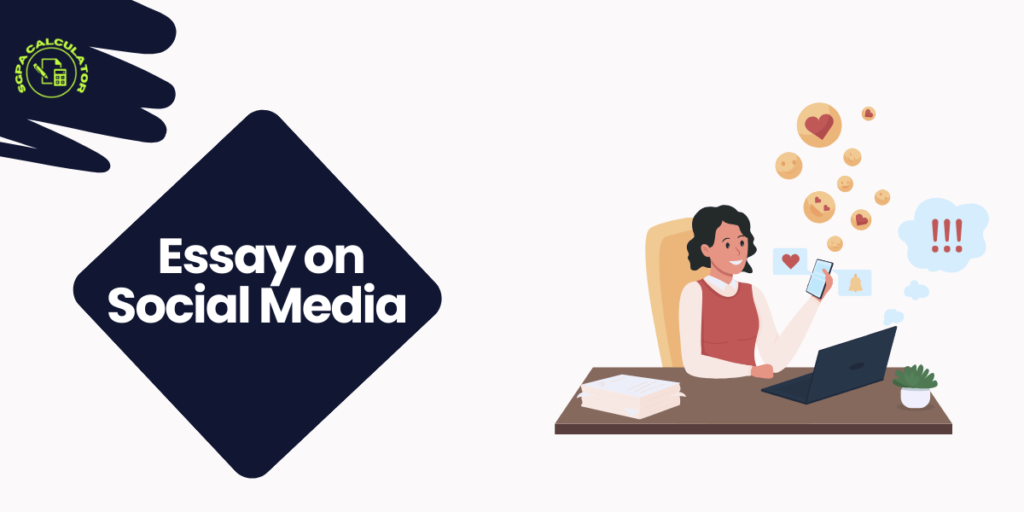Our daily interactions, opinions, and even our self-esteem have been shaped by websites like Facebook, Twitter, Instagram, and TikTok. This essay examines the complex effects of social media on society, exploring both the good—like activism and connectivity—and the bad—like addiction and false information.
Communication and Connectivity
The power of social media to connect individuals beyond geographical borders is among its most amazing features. It has facilitated communication by enabling people to connect with friends, family, and acquaintances anywhere in the world. Social media sites provide a virtual setting where users may keep up with each other, share information, and communicate in real time. For instance, Facebook makes it possible for people to get in touch with old friends, while services like Skype and WhatsApp provide cheap international calls and video conversations, bridging the gaps caused by geography.
Read Our Essay: Cow Essay
Social media has also been crucial in bringing together people who have similar interests or concerns. Online forums and communities have popped up, giving like-minded people a place to talk about their interests, whether they be hobbies, causes, or careers. These neighbourhoods encourage a sense of community and friendship that might not otherwise be achievable.
Social Change and Activism
Social change movements and activists now use social media as a potent instrument. It provides a platform for underrepresented groups to be heard and for significant causes to receive support. Social media helped movements like #BlackLivesMatter, #MeToo, and the Arab Spring gain traction and mobilise supporters throughout the globe. A global awareness of social inequalities and human rights breaches has been raised by the rapid dissemination of information, photographs, and videos on websites like Twitter and Instagram.
Social media has also made fundraising and contribution campaigns for many charitable causes easier. Using websites like GoFundMe, people and organisations may generate a lot of money for humanitarian causes like paying for medical expenses and disaster relief. Through the democratisation of fundraising, anybody may now give to causes they care about and have a real influence.
Read Our Eassy: Pollution Essay
Information Sharing and Education
How we obtain and exchange information has changed as a result of social media. Traditional news sources are no longer the only places to get the latest information; social media platforms have developed into potent tools for quickly disseminating information. This has the potential to be a double-edged sword since it may promote the spread of false information (covered later), but it also makes breaking news and real-time updates readily available.
Furthermore, social networking websites have developed into priceless resources for teaching. Universities, educators, and specialists disseminate knowledge, research discoveries, and educational materials using websites like YouTube, LinkedIn, and Twitter. Due to this, education is now more widely available to people from all walks of life, regardless of where they live or how well off they are financially.
Entrepreneurship and personal branding
Personal branding is a new phenomena brought on by social media. On websites like Instagram and TikTok, people may demonstrate their abilities and knowledge, creating personal brands that can open doors to employment and financial success. Social media influencers with sizable fan bases have developed into powerful marketing assets that work with brands and make good money.
Social media has also made entrepreneurship more accessible to everyone. It gives small companies a platform to advertise their goods and services to a large audience around the world for a fraction of the price of conventional advertising. Individuals may launch and expand their enterprises thanks to websites like Etsy and Shopify, which encourages economic empowerment and financial freedom.
Read Our Eassy: My Best Friend Essay
Consequences of /Essay on Social Media
While social media has many advantages, it is important to recognize its drawbacks as well.
Isolation from social groups and mental health
Ironically, despite digitally connecting people, social media can also result in physical social isolation. Overusing social media can make people avoid in-person contacts, which can result in feelings of loneliness and melancholy. In particular, among young people, the constant comparison of one’s life to the carefully chosen and frequently irrational images and experiences published on social media can contribute to low self-esteem and body image concerns.
Time-wasting and addiction
Social media sites are made to be enticing, with features like notifications, likes, and scrolling that keep users interested. As people spend hours idly scrolling through their feeds instead of participating in more productive pursuits, this addiction can result in enormous time waste. This time drain may have a negative impact on relationships, productivity, and general wellbeing.
Misinformation and Polarisation
On social media, information may move quickly, which opens the door to the transmission of false information and fake news. False information can spread like wildfire very rapidly, confusing the people and influencing their actions. Additionally, social media algorithms frequently favour content that supports a user’s pre-existing opinions, resulting in echo chambers that feed prejudice and polarised society.
Read Our Essay: My School Essay
Summary
Social media has both beneficial and detrimental effects on society, making it a two-edged sword. It has changed the way we connect, communicate, and obtain information, promoting activism, education, and connectedness. But technology has also led to problems like addiction, social isolation, and the dissemination of false information. It is crucial as we traverse the digital age to establish a balance between social media’s advantages and disadvantages, using these platforms thoughtfully and ethically to maximise their potential for good change while minimising its bad effects. Ultimately, as technology develops and our comprehension of its ramifications broadens, the influence of social media on society will continue to change.





